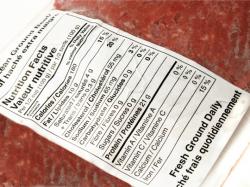Canadian Pork Producers Welcome The WTO Panel Decision On COOL
November 23, 2011 | 2 min to read

AIRDRIE, ALBERTA — Canadian pork producers welcome the WTO Panel decision which strikes down trade illegal elements of the U.S. Country of Origin (COOL) legislation as it applies to imported livestock.
The Panel report, released to the public this morning, "vindicates our objections", said Canadian Pork Council (CPC) Chairman Jurgen Preugschas. Attending a joint press conference at Airdrie, Alberta with the Hon. Gerry Ritz and the Hon. Ed Fast, Preugschas added, "We welcome this ruling and CPC congratulates the Government of Canada, its legal team and dedicated government officials who provided unflagging support through more than two years of intensive effort."
The Canadian Pork Council and its members from Ontario and Manitoba worked in collaboration with the Canadian Cattlemen's Association to provide the analysis to support the government's request for the WTO to appoint a panel to look into whether these new U.S. labeling requirements were a violation of international trade laws. The industry believed the legislation restricted market access and constitute a technical barrier, including to the movement of live swine into the U.S. market.
Karl Kynoch, Chair of Manitoba Pork, who operates a farm at Baldur, Manitoba, explained that "the impact of the COOL measure on Manitoba exports of weanlings was immediate and dramatic. From 2007 to 2010, weanling exports declined 30% in volume and at least $5-10 per animal in value." Mr. Kynoch explained that "U.S. feeders had to cope with extra recordkeeping and administrative costs when using Canadian piglets and feeder animals, combined with retailer decision to sell only pork from animals born, bred and slaughtered in the USA had a devastating impact on Manitoba hog producers. The Panel has found that these additional recordkeeping requirements are inconsistent with U.S. WTO obligations."
Wilma Jeffray, Chair of Ontario Pork, who raises hogs and cattle near Belmore, Ontario, explained that "The COOL rule has limited the number of plants processing Canadian hogs, thereby complicating the logistics of moving animals from farm to processing plants. These were contributing factors to the nearly 60% drop in market hog exports from Ontario to the US from 2007 to 2010. We call on the US administration to comply with the WTO ruling."
While the Panel decision may be subject to review by the WTO Appellate Body, CPC will be working with like-minded groups in the U.S. to find a meaningful solution without further litigation.
"There has been considerable damage to our exports – for no reason", said Mr. Preugschas, who farms at Mayerthorpe, Alberta. "The North American hog industry is highly specialized, and was very integrated before COOL. We need to try to get back to normal as soon as possible."
Source: Canadian Pork Council
